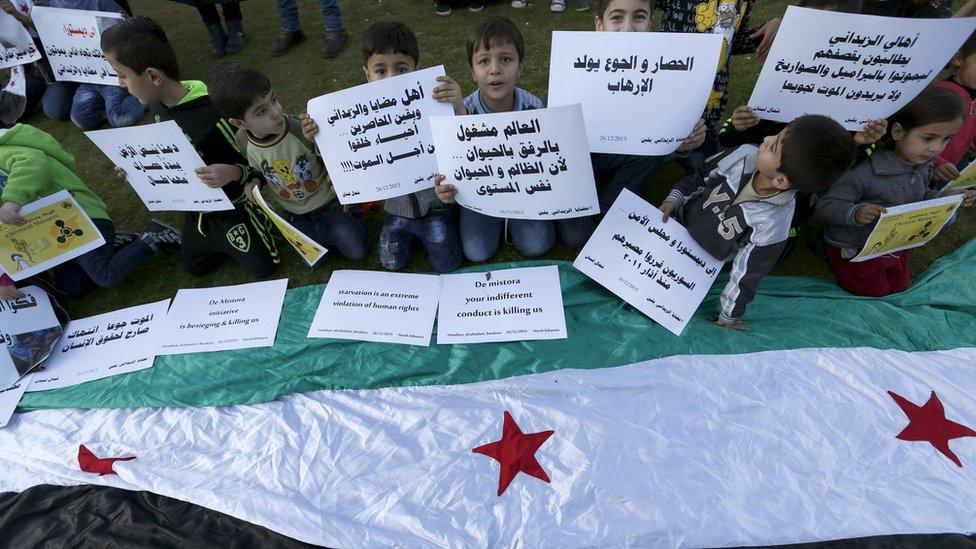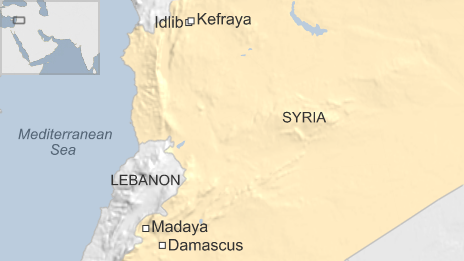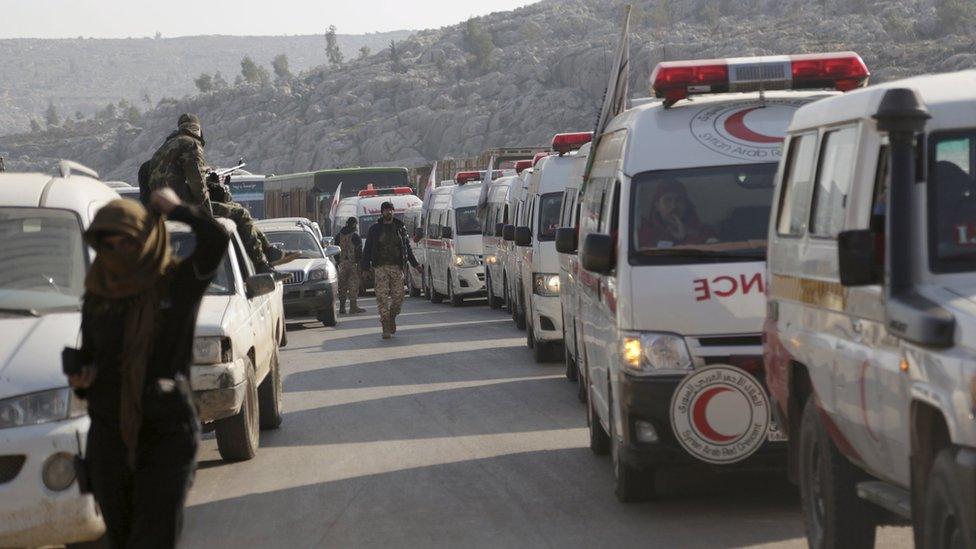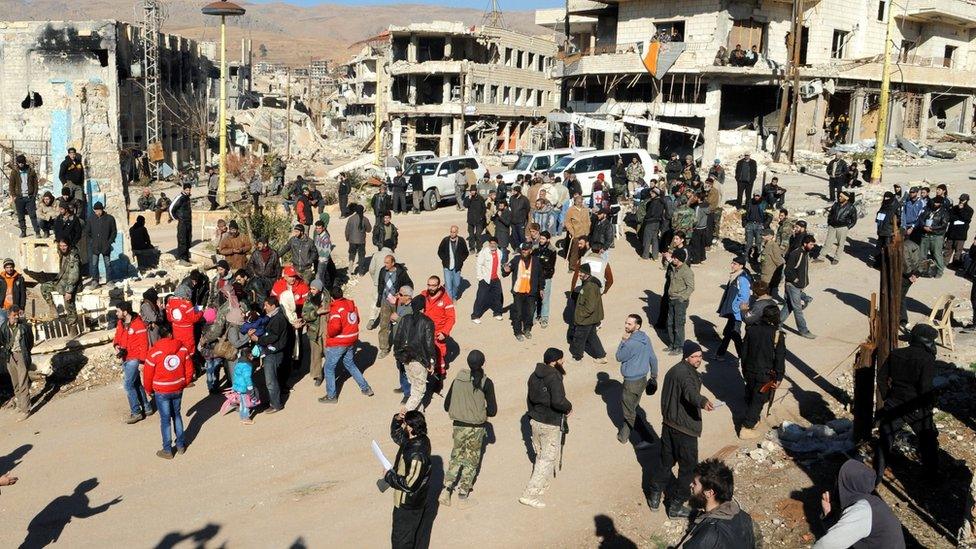Syria conflict: 'Dire situation' in besieged villages
- Published

Syrian opposition supporters have urged the UN to ensure aid reaches Madaya
The situation in three besieged villages in Syria is "extremely dire", the International Committee of the Red Cross (ICRC) has warned.
Activists say civilians have died because of a lack of food and medicine in rebel-controlled Madaya, near Damascus, or died trying to escape.
People are also reported to be eating grass to survive in the government-held Foah and Kefraya, in the north-west.
The ICRC said it hoped to get aid to all three villages in the coming days.
The UN says all parties to the four-year conflict in Syria have used siege warfare, in clear breach of international human rights and humanitarian laws.
An estimated 393,700 people were living under siege as of late October.
'Eating off the ground'
Madaya, which is situated about 25km (15 miles) north-west of Damascus and 11km from the border with Lebanon, has been besieged since early July by government forces and their allies in Lebanon's Shia Islamist Hezbollah movement.
In mid-October, 21 lorries were allowed to deliver medical and humanitarian supplies to the village, where 40,000 people are currently believed to be living.
Conditions have worsened since then, with the onset of winter and no further aid.

ICRC spokesman Pawel Krzysiek told the BBC that he had visited Madaya during the last aid delivery and that the situation was already very difficult.
"People were living there without basic supplies," he said. "Now the situation is even more dire."
"The winter obviously makes things worse, with people desperately trying to get what they can to power their stoves - including burning plastic, which results in respiratory problems."
Mr Krzysiek said the ICRC could not confirm reports of deaths from Madaya.
The Syrian Observatory for Human Rights, a UK-based monitoring group, reported on Monday that 10 people had died because of lack of food in recent weeks, and that 13 others had either been shot dead by pro-government forces or blown up by mines while trying to leave in search of food.
A further 1,200 people inside the village had chronic illnesses and more than 300 children were suffering from malnutrition and other ailments, it said.
"Citizens are dying. They're eating stuff off the ground. They're eating cats and dogs," an activist whose family is inside Madaya told the BBC on Tuesday night.

A deal saw wounded fighters and civilians evacuated from Foah and Kefraya last month

People were also allowed to leave the rebel-held town of Zabadani, which is next to Madaya
The activist called on the UN and the international community to "support the people of Madaya and open up humanitarian corridors".
The cost of basic goods has also surged, with 1kg (2.2lb) of crushed wheat selling for as much as $250 (£171) and 900g of powdered formula for babies going for about $300, one local official told the Associated Press.
Activists said the siege of Madaya had been stepped up by the government and Hezbollah in retaliation for the rebel siege of Foah and Kefraya.
The situation in the predominantly Shia villages, about 7km (5 miles) to the north of the rebel-held provincial city of Idlib, is also reported to have worsened since the fall in September of a nearby government air base where helicopters were able to land and drop off food supplies.
Some of the estimated 30,000 people trapped in the villages have been forced to eat grass and undergo surgery without anaesthesia, according to wounded pro-government fighters evacuated at the end of December under a deal that also saw rebels and civilians allowed leave Zabadani, a town next to Madaya.
One of the fighters evacuated from Kefraya told AP life there was "catastrophic".
Mr Krzysiek said it was the ICRC's "utmost priority" to deliver aid to Madaya, Foah and Kefraya in the coming days, but warned that it still had to negotiate access.

Do you know anyone in the affected villages? Share your experiences with us. Email stories to haveyoursay@bbc.co.uk, external.
Please include a contact number if you are willing to speak to a BBC journalist today. You can also contact us in the following ways:
WhatsApp: +44 7525 900971
Tweet: @BBC_HaveYourSay, external
Text an SMS or MMS to 61124